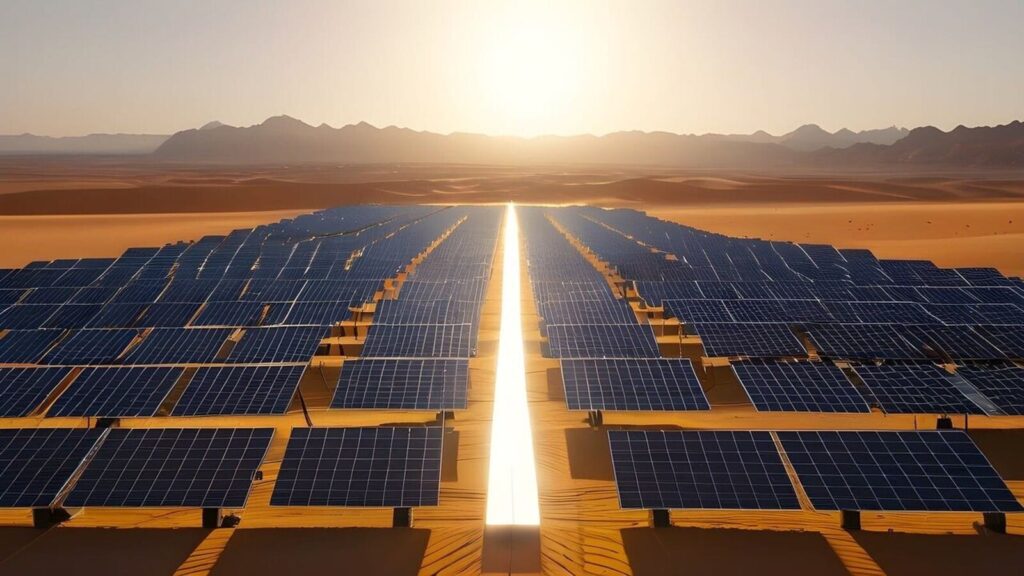Swedish-Swiss engineering giant ABB Ltd sees firms across the world move to more realistic targets across sectors for transition to cleaner energy technologies amid sentiments changing globally post Donald Trump’s return as US president earlier this year.
The company, which is the largest electrical equipment manufacturer in India by market capitalization, sees timelines of transition shifting ahead due to the realisation that the previously set targets were unrealistic, as per a senior company executive.
“I think we were kind of as a global society, a little unrealistic in how fast that transition is going to happen,” said Brandon Spencer, president of ABB’s motion business and a member of its group executive committee.
Unlike previous transitions where the world moved towards cheaper sources, Spencer argued that this transition is happening because it’s good for the planet.
“We see timelines pushed to the right now. I think it has come back to more realism than maybe over optimism,” Spencer said.
The expected shift in timelines come amid cuts in climate spending in the world’s largest economy. In a recent spending bill introduced and passed by the US Congress, tax credits for low carbon emission sources were eliminated.
Moreover, the bill promoted by the Trump administration also cut incentives for electric vehicles. This came months after the US pulled out of the Paris Climate Agreement.
Also read | Clean energy is under attack even where it’s booming
Spencer is not alone in seeing climate transition timelines changing.
Jérôme Sevin, partner and global lead for energy and process industry at consulting firm Kearney, earlier told Mint in an interview that progress on energy transition will be delayed due to Trump’s push for oil and gas production.
The US and Europe have targets to turn carbon neutral by 2050. India has set a target of 2070 to turn carbon neutral.
Although the wind is changing in the global markets, players like ABB do not see any impact on its business.
“For the motion business in ABB, we supply to every single one of those industries. So, for us and with the diversity that we have, it doesn’t matter which one of those is a winner or not, because every single one of them needs motors, drives, generators in order to power that industry forward,” Spencer said.
ABB’s motion business is mainly in the business of making industrial motors used in powering machinery and equipment at industrial plants. It has four manufacturing units in India and its major customers in the country include Tata Steel Ltd, Witt India, ArcelorMittal, and JSW Steel.
In 2024, ABB’s motion business posted a revenue of ₹4,287 crore in India, up from ₹3,785 crore in the year before.
Also read | India-Pak conflict: Renewable energy projects along border may see tariffs rise on higher insurance premiums
Sustainable savings
Spencer explained that the key point in ABB’s pitch has to be the fact that its solutions are not only more sustainable but also the fact that they lead to considerable cost savings.
“We just sold a synchronous motor that’s going on a compressor for an Indian steel application. And it’s 99.13% efficient, which is leading to $6 million in electricity cost savings across its lifetime,” he said.
Another headwind for companies across the world has been the looming threat of the Trump administration’s decision to impose reciprocal tariffs across the world.
ABB, which works with companies such as INOX, Sulzer, and Ingersoll Rand that export from the Indian market to the US and West Asia, expects its local-for-local strategy will help.
About 10% of ABB’s total ₹12,188 crore revenue came from exports in the Indian market. The company does not disclose how much it exported from its motion business.
But its investor presentation post the announcement of financial year 2024 results on 9 May suggested that tariff barriers will remain a challenge to watch out due to its impact on supply chains.
“Our strategy hasn’t changed just because the current wind has changed. You know our strategy needs to be more robust than that short of a cycle,” Spencer said. “We will take care of the local market for growth, but if we can export from here, there is a competitive advantage; we will do that and we will do it wherever it can make sense.”
Also read | Non-stop renewable energy key to lowering green hydrogen prices: Gentari CEO
Source:https://www.livemint.com/companies/abb-clean-energy-transition-targets-trump-climate-policies-11749383139627.html

